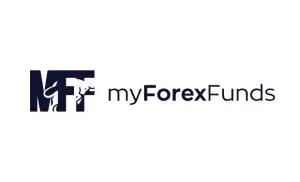Court rules in favor of My Forex Funds CEO, unfreezes $100 million in assets
The legal battle between My Forex Funds (MFF) and the US Commodity Futures Trading Commission (CFTC) continues to unfold in a New Jersey court.

In a court decision yesterday, MFF’s Founder and CEO, Murtuza Kazmi, secured partial victory with the release of assets valued at around $100 million. However, the court upheld the freeze on $12.08 million of these assets and dismissed the idea of appointing a new temporary receiver.
The lawsuit initiated by the CFTC accused MFF, its CEO, and associated entities of fraudulent activities exceeding $300 million, focusing on deceptive practices in leveraged retail FX and commodity transactions. Traders Global, part of MFF, reportedly acted as the counterparty to most customer trades, employing various tactics to impede customers’ profitable trading.
MFF’s defense team countered the CFTC’s claims, citing tax payments and raising fundamental questions about the lawsuit’s validity. They challenged the allegations and the agency’s jurisdiction over the transactions, arguing that MFF had not solicited or accepted customer investments.
Moreover, MFF’s defense contested the CFTC’s portrayal of pre-authorized payments as transfers to the CEO, claiming that these funds were intended for Canadian tax authorities. They also questioned the extreme nature of the statutory restraining order, labeling it as an excessive measure to shut down a business and freeze personal assets.
Based on the CFTC’s data, MFF disbursed $137 million while under investigation from November 2021. Throughout this period, the prop firm accrued $310 million in fees from nearly 135,000 clients, indicating that the company allocated 44% of its earnings to successful traders. With this client base, MFF’s average revenues and payout per customer were $2,296 and $1,015, respectively.
The CFTC’s complaint against My Forex Funds brought to light a range of deceptive practices, including unjustly terminating customer accounts, misleading commission assessments, and executing customer orders at unfavorable prices using specialized software. The legal actions extended beyond the US, with the Ontario Securities Commission imposing a temporary cease trade order against Traders Global and Kazmi.
The case raises important questions about the proprietary trading industry’s practices, particularly regarding drawdown rules and income generation from failed challenges, which are standard in many prop firms. As the case remains ongoing, there are aspects highlighted in the complaint that might be typical or common within the proprietary trading (prop) industry, creating a grey area in terms of regulatory scrutiny.
More Specifically, the CFTC’s focus on the funding sources for trader payouts may indicate regulatory concerns about the transparency and use of evaluation fees in prop firms.
Certain practices, like drawdown rules and generating income from failed challenges, are part of the standard operations in many prop firms. Drawdown rules, for instance, are commonly employed risk management measures in prop trading to control trading exposure.
While it might not be unusual for prop firms to generate income from evaluation fees, the CFTC’s focus on how the payouts were funded—whether from trading proceeds or evaluation fees—raises questions about their operational practices within the regulatory framework.
Overall, the specific interpretation and enforcement of regulations might ultimately vary, and this case may prompt a closer examination of how prop firms handle their income sources, especially regarding trader payouts and revenue generation practices.









